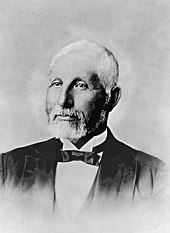| Castro Creek | |
|---|---|
 | |
| Location | |
| Country | United States |
| State | California |
| Region | Contra Costa County |
| Physical characteristics | |
| Source | |
| • location | Chevron USA Richmond Oil Refinery |
| • coordinates | 37°56′15″N122°23′13″W / 37.93750°N 122.38694°W [1] |
| Mouth | San Pablo Bay |
• coordinates | 37°58′6″N122°24′26″W / 37.96833°N 122.40722°W [1] |
• elevation | 0 ft (0 m) [1] |
| Basin features | |
| Tributaries | |
| • right | Wildcat Creek |
Castro Creek is a creek in Richmond, California, in the western part of the city adjacent to the Chevron Oil Refinery. Wildcat Creek drains into it directly and though other Wildcat Marsh tributaries into Castro Cove of San Pablo Bay. The creek drains from the drainage basin of the surrounding area and was once part of the channel that separated the island of Point Richmond with the mainland. [2]

